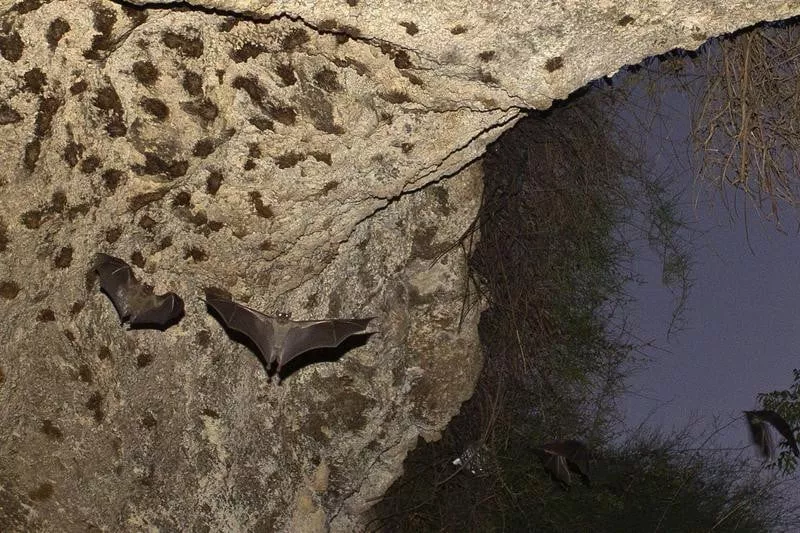WHO report rules out lab-leak theory of novel coronavirus
Findings match what WHO officials said in the past about their conclusions following a Jan-Feb visit to China
An international expert mission to Wuhan concluded in a report seen Monday that Covid-19 likely first passed to humans from a bat through an intermediary animal, with investigators all but ruling out a laboratory leak.
The intermediate host hypothesis was deemed "likely to very likely", while the theory that the virus escaped from a lab was seen as "extremely unlikely", according to a copy of the long-awaited final report obtained by AFP before its official release.
The report, drafted by a team of international experts appointed by the World Health Organisation and their Chinese counterparts, comes as dramatic infection spikes in Europe have forced a tightening of unpopular restrictions across the continent.
In sharp contrast, people in England were set for what newspapers dubbed "Happy Monday", with stay-at-home orders relaxed as rapid vaccinations appeared to drive down infection rates there.
But as countries rush to vaccinate and stem the spread of Covid-19, the mystery at the very heart of the pandemic -- how the virus that causes the disease first jumped to humans -- remains unsolved.
Read more: Keep using AstraZeneca vaccine, WHO urges world
The report from the international mission to the Wuhan, where the virus first emerged in late 2019, has been keenly anticipated ever since the expert team wrapped up and left China more than a month ago.
Delays in the publication of the findings, drafted by 17 international experts and 17 Chinese counterparts, had been blamed on coordination and translation issues, even as a diplomatic tug-of-war raged in the background over the report's contents.
The repeated delays sparked renewed criticism of the UN health agency's slow actions in getting the team to Wuhan in the first place.
The experts tasked with probing Covid-19's origins only arrived there on January 14, more than a year after the first cases surfaced in the Chinese city.
In the 15 months since the coronavirus emerged, the pandemic has engulfed the planet, killing nearly 2.8 million people and pummelling the global economy.
Vaccines have offered a glimmer of hope and allowed some countries to emerge from more than a year of punishing anti-virus measures.
People in Britain rushed to pools and parks Monday to enjoy newfound freedoms as the government peeled back restrictions there, allowing small groups to gather, or sports activities to resume.
"We haven't swum since the fifth of January so we were beyond excited to come back and get back into the water," swimmer Jessica Walker told AFP at a pool in London.
"It's very exhilarating, it's absolutely fantastic for managing both mental and physical health."
As Britons dipped back into a pre-pandemic life, several experts turned their attention to the origins report.
But the highly-anticipated document offered few firm conclusions.
It said evidence suggested the Covid-19 outbreak may have begun several months before it was first detected in Wuhan in December 2019, and called for Covid antibody testing of samples in Wuhan blood banks from as far back as September that year.
They also said it remained unclear what role the Wuhan market had played in sparking or amplifying the initial outbreak, and presented no clear answer on how the virus first jumped to humans.
Dutch virologist and team member Marion Koopmans rejected the focus on the unanswered questions, stressing on Twitter that the experts had presented a huge amount of information.
"Not everything answered but surely a good start," she said.
The experts worked to rank a number of hypotheses on the pandemic origins according to how likely they were.
They believe that the SARS-CoV-2 virus that causes the Covid-19 disease originally came from bats.
One theory examined was that the virus jumped directly from bats to humans. The final report determined that this scenario was "possible to likely".
A more probable scenario, the report found, was that the virus had first jumped from bats to another animal, which in turn infected humans.
"Although the closest related viruses have been found in bats, the evolutionary distance between these bat viruses and SARS-CoV-2 is estimated to be several decades, suggesting a missing link," the report said.
"The scenario, including introduction through an intermediary host, was considered to be likely to very likely," it said.
The report did not however conclusively identify which animal first allowed the virus to jump to humans, but it named a number of candidates, including mink, pangolins, rabbits and ferret badgers.
A third hypothesis the experts examined was whether the virus may have been imported to Wuhan in frozen food -- a favourite theory in Beijing, which has questioned the initial assumption the virus originated in China.
The report did not rule out transmission through frozen food, since the virus has been shown to survive on frozen food packages, and listed the theory as "possible".
But while it said there was some evidence that people could be infected through handling contaminated frozen products, it was very unlikely that was how the virus was first introduced.
Finally, the report examined the idea of a lab leak from, for instance, the Wuhan Institute of Virology -- a theory promoted by former US president Donald Trump's administration.
It pointed to the fact that there was no record of any virus resembling SARS-CoV-2 in any laboratory before December 2019, and stressed high safety levels at the labs in Wuhan.
"A laboratory origin of the pandemic was considered to be extremely unlikely," the report said.
But in Geneva on Monday, WHO boss Tedros Adhanom Ghebreyesus stressed that all origin theories remained on the table.
"All hypotheses are open, from what I read from the report... and warrant complete and further studies," he told a press conference.


COMMENTS
Comments are moderated and generally will be posted if they are on-topic and not abusive.
For more information, please see our Comments FAQ